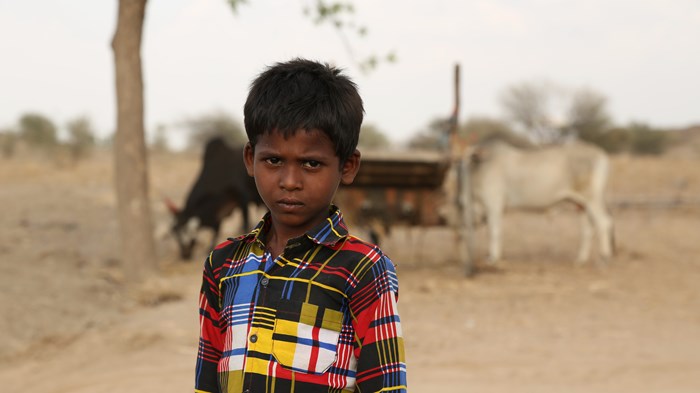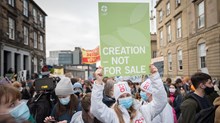Climate Changes Will Affect the Church. What if the Church Takes the Lead?

Imagine it’s the summer of 2060.
Perhaps another scandal is making its way through the headlines. It’s an election year. Political divisions in the country continue to expose the fragile and fractured political landscape. New factions have formed within Christianity in the West over age old theological debates.
But just as your church is planning to host a panel about ministry organizational health, or travel to a conference about Christian engagement in the political sphere, the greatest heatwave on record sweeps through your region of the country. Fourteen days of intense heat that include five straight days of one hundred and five degree temperatures combined with fervent humidity cause a blackouts in multiple cities for the first time in your lifetime.
Billions of dollars are lost as crops, livestock, and energy have taken major setbacks causing food shortages and increasing temperatures place heavy demands on energy consumption. Dozens of people, including children and people without housing, are reported as dropping dead on the street or inside of stores as the medical system is overwhelmed and cannot reach them in time. While you survive the heatwave, the late summer’s hurricane season unleashes the most severe storms with flooding and damage that renders several small coastal cities uninhabitable.
This may sound like an apocalyptic scenario, but its one that is certainly possible that many who are reading this article might experience in our lifetime. These are only some of the effects which could take place if the global temperature passes 1.5 degrees Celsius and reaches 2 or even 3 degrees Celcius, a phenomenon known as global warming, or more specifically climate change.
In April, the Intergovernmental Panel on Climate Change (IPCC) released its third installment of it’s Sixth Assessment Report composed by thousands of scientists and climate experts from all over the world. The co-chair of the working group of scientists which produced the report gave a final warning of “now or never” if the world is going to evade a future climate disaster or breakdown. John Kerry, the US Special Presidential Envoy for Climate stated that the IPCC report is a “defining moment for our planet” and that “we are currently falling short in our battle to avoid the worst consequences of the climate crisis.”
It is no secret that the issue of climate change is a hotly debated topic in political and Christian circles in the United States. Scientists have confirmed that the climate is indeed changing. The last three decades have been the hottest in recorded history with the most recent decade being the hottest in history. Sea levels are expected to rise in the next thirty years. The Artic is warming four times faster than the rest of the world.
But what makes climate change such a controversial subject is the idea that human activity has been the cause of climate change, a fact that has also been confirmed by scientists for some time. According to a Yale study in 2021, 70 percent of Americans are concerned about global warming, yet, compared with Catholics (69%) and non-evangelical Protestants (62%), evangelicals are less likely to believe that global warming is happening (51%).
Overall, the fact is that the climate of our planet is changing, and while many of the solutions to keep our global temperature below 1.5 degrees Celsius are found at a national and policy level, the changing climate presents an opportunity for Christians to love our neighbors particularly by calling our nation and our world’s leaders to action and preparing for the coming implications of the changing climate.
There’s an ancient African-American proverb that says that when white folks catch a cold, black folks get pneumonia. And while this statement has been used to describe the realities of racial inequality in our own country, it’s truth could be applied globally, not as it pertains to race, but economically.
Whereas the changing climate will have an effect on both wealthier and poorer countries and cities, it will be the populations made up of the poor and the marginalized who will be disproportionately affected and most vulnerable to climate hazards such as severe storms and flooding, famine, drought, and starvation which in turn produce issues such as loss of income sources, malnutrition, displacement, food insecurity, and permanent impacts on health.
In present times, there is no shortage of Christian humanitarian aid for those in need during moments of crisis and seasons of natural disasters. Both Christian and secular humanitarian aid often respond generously and compassionately in these moments. But in light of the IPCC’s revelations, it’s time to assess the moment our world is in and ask what a proactive Christian response might be to the potential climate hazards that will disproportionately affect the world’s poor and marginalized.
These potential hazards affect not only the lives and livelihood of our neighbors both now and in future generations, but for many places including the United States, these hazards will affect the work of missions and evangelism. What would it look like if Christians took the lead in preparing for these potential disasters?
Some have said that the recent scientific findings on climate change and global warming have placed us in a Joseph-like moment. Genesis 41 records Joesph’s interpreting the God-given dreams of Pharoah that warn of an oncoming famine throughout the land, a famine that Joseph forsees and is promoted to prepare and provide for. While our means of warning are not supernatural dreams but scientific data, Christians should pay attention to the research and like Joseph, with discernment and wisdom, consider strategies of preparation, working alongside of organizations and political leaders to care for those who are most vulnerable and at risk.
The world’s changing climate presents an opportunity to followers of Jesus to care for and be good stewards of God’s creation, and it also presents an opportunity to love our neighbors, particularly by looking ahead at the forecast of our changing world which might bring literal storms and disasters, and look to provide and protect the most vulnerable.
Rayshawn Graves is a writer and serves as Director of Mission at Northside Church in Richmond, Virginia.
The Better Samaritan is a part of CT's
Blog Forum. Support the work of CT.
Subscribe and get one year free.
The views of the blogger do not necessarily reflect those of Christianity Today.






















